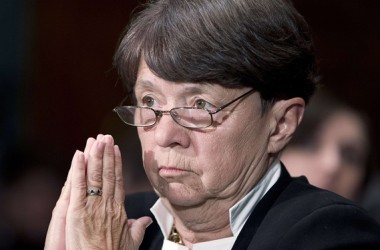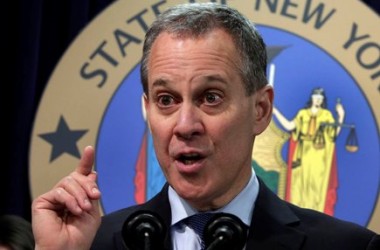
BrokerDealer TOP NEWS–courtesy of Law360-Top Story: SEC joins with FDIC in new rule for BDs deemed too big to fail, latest court ruling involving Madoff case, and more.
SEC Floats Rule With FDIC On Failing Broker-Dealers
The U.S. Securities and Exchange Commission and Federal Deposit Insurance Corp. jointly proposed a rule Wednesday intended to provide a more efficient liquidation process for large broker-dealers in the event they fail, carrying out a mandate under the Dodd-Frank Act.
Broker Describes IBM Tipping Chain In SEC Insider Case
A broker testified in New York federal court on Wednesday that he relayed information about an impending $1.2 billion IBM acquisition to two former colleagues who are now on trial in a closely watched U.S. Securities and Exchange Commission insider trading case.
Madoff Trustee Shuts Down $11B Investor Suit For Now
A Manhattan federal bankruptcy judge on Wednesday blocked the latest investor suit targeting a Bernie Madoff associate for his role in Madoff’s massive Ponzi scheme, agreeing with the trustee for Madoff’s defunct securities firm that the $11 billion claims in Florida are preempted by a 2011 settlement.
Victims of Bernard Madoff’s fraud cannot pursue a Florida lawsuit to recover $11 billion from the estate of Jeffry Picower, who they say helped perpetuate the swindler’s Ponzi scheme, a Manhattan bankruptcy judge ruled on Wednesday.
U.S. Bankruptcy Judge Stuart Bernstein said the lawsuit by A&G Goldman Partnership and Pamela Goldman, their third effort to sue in Florida, violated an injunction barring Madoff victims from pursuing claims belonging to Irving Picard, the trustee liquidating Bernard L. Madoff Investment Securities LLC.
Ex-Wells Fargo Trader Fights SEC’s Insider Trading Finding
A former Wells Fargo trader urged the U.S. Securities and Exchange Commission to overturn part of a finding by the agency’s in-house court that he made four trades on tips from an analyst, but asked it to preserve the court’s finding that cleared him in two other trades, according to a brief filed in the appeal.
SEC Hits More Traders With Newswire Hacking Allegations
The U.S. Securities and Exchange Commission on Wednesday brought more litigation over an alleged scheme to hack into newswires to secure a trading advantage, filing suit in New Jersey federal court against Russian traders who allegedly scored more than $19.5 million in illegal profits.
7th Circ. Won’t Rekindle Steak ‘N Shake Suit Over CEO Deals
The Seventh Circuit on Wednesday refused to revive a shareholder derivative suit against the heads of restaurant chain Steak ‘n Shake filed over deals which purportedly enriched holding company CEO Sardar Biglari at the expense of the company, citing a lack of a sufficient challenge to company leaders’ business judgment.
Ex-Deutsche Bank Analyst In Big Trouble Over Big Lots Rating
A former Deutsche Bank research analyst has been suspended from the securities industry for a year and ordered to pay a $100,000 fine over Securities and Exchange Commission charges that he let his relationship with Big Lots Stores Inc. executives taint his analysis of the company and its stock.
Atty Violated Securities Laws In Fracking Venture, Judge Says
A Texas federal judge on Wednesday found that an attorney violated securities laws in connection with a fracking water filtration venture, but did not immediately rule on $2.5 million in disgorgements and civil penalties sought by the U.S. Securities and Exchange Commission.
POLICY & REGULATION
IRS Locks In Rules On Broker Reporting Obligations
The Internal Revenue Service on Wednesday released final regulations on brokers’ reporting requirements for transactions involving debt instruments and options, including the reporting of original issue discounts on tax-exempt obligations.
LITIGATION
11th Circ. Won’t Revive Paulson Feeder Fund Investor’s Suit
The Eleventh Circuit on Wednesday refused to revive a Florida investor’s suit against Paulson & Co. hedge fund managers for his losses in a feeder fund, after Delaware’s high court answered a certified question from the appeals court by saying he had no direct claim.
Bankia Commits $2B To Repay Retail Investors For IPO Bust
State-backed Spanish lender Bankia SA said Wednesday it will set aside €1.84 billion ($2.1 billion) to fully refund retail investors for their losses following the company’s doomed, 2011 initial public offering and to resolve ongoing litigation after the bank lost two appeals.
Argentina To Pay $1B To End Debt Fight With EM, Montreux
Argentina has agreed to pay creditors EM Ltd. and Montreux Partners LP as much as $1.1 billion to resolve long-running litigation over the country’s 2001 default, according to documents filed Wednesday in New York federal court.
$27M Goldman CDO Deal Gets Judge’s Initial Sign-Off
A New York federal judge preliminarily approved a $27.5 million settlement Tuesday between Goldman Sachs Group Inc. and a class of investors led by hedge fund Dodona I LLC that sued over toxic collateralized debt obligations.
Ex-Rabobankers Denied Acquittal, New Trial In Libor Scam
A New York federal judge denied acquittal or a new trial Wednesday for two former Rabobank traders convicted of conspiracy and wire fraud in connection with a scheme to manipulate Libor, rejecting arguments their submissions to the global benchmark weren’t misstatements intended to cause harm.
Genworth Says Witness Recantations Ruin Investors’ IPO Suit
Genworth Financial on Wednesday blasted investors opposing the insurance giant’s bid to dismiss multidistrict litigation over an initial public offering delayed by a swell of mortgage insurance claims, telling a New York federal judge that they’ve relied on “irrelevant distractions” in an effort to rescue recanted testimony from the cutting-room floor.
ADT Wants Lookalike $450M Stock Buyback Suit Tossed
ADT Corp. urged the Delaware Chancery Court to toss a shareholder suit over $450 million in stock the company repurchased from a hedge fund, saying Wednesday the case nearly mirrors a challenge the court threw out 10 months ago.
AIG Unit Policy Must Pay Prejudgment Interest, 9th Circ. Told
Nutritional supplement maker Cell Tech International shareholders on Wednesday urged the Ninth Circuit to find that an American International Group unit owes them them millions of dollars in prejudgment interest on a $4.1 million judgment against the insurer, saying a lower court erred in ruling that a $5 million policy limit precludes the interest.
Investor Green Cards Imperiled In EB-5 Fraud Case, Court Told
A group of investors in a real estate project targeted by a $136 million EB-5 fraud suit brought by the U.S. Securities and Exchange Commission urged a Washington federal judge on Tuesday not to let a receiver in the case sell the project without considering their immigration interests.
Lehman Tells 2nd Circ. Treaty Entitles It To Tax Credits
Defunct investment bank Lehman Brothers Holding Inc. told the Second Circuit on Tuesday that its bankruptcy administrators are entitled to $67 million in foreign tax credits under the terms of a 1975 U.S-U.K. income tax treaty favoring newly enacted legislation.




